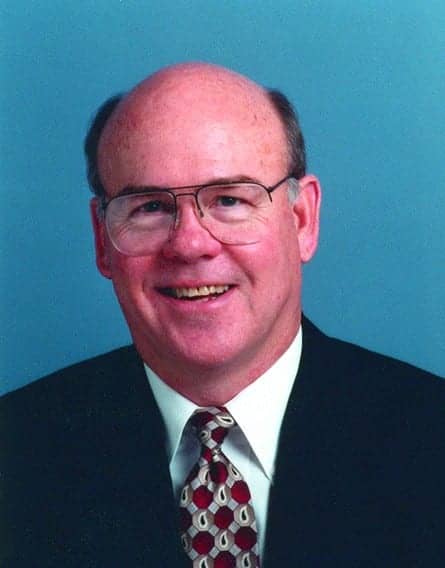Within the dynamic of most happily married couples, it’s safe to assume that any purchase of $3000-$6000 is only made after mutual consultation. After all, when one person in the family has a hearing problem, everyone effectively has a problem.
Getting the spouse, daughter, or partner to attend the initial hearing evaluation is almost essential, but how can hearing care professionals (HCPs) make this happen when it’s often difficult to get just one person to make a visit? Even in an era when feelings and disabilities are more openly expressed, HCPs see hesitancy and denial all too often.
“We human beings still don’t want to admit our frailties, and society will let us slide by with a hearing impairment,” says Von Hansen, a long-time audiology consultant who owns Von Hansen Training, based in Lebanon, Ore. “People will speak up, repeat, and do whatever it takes to make the hearing-impaired person comfortable. We want to deny the hearing impairment, and our culture will help us deny it and even enable it.”
And, as Hansen has pointed out in a previous Hearing Review article, society seldom questions the medical prescriptions of physicians, ophthalmologists/opticians, or dentists. Of all healthcare providers, HCPs may be viewed by patients as the most elective.
Why is it so important to have a significant other present?
During a one-on-one appointment, there is only one patient perspective. The presence of a loved one allows hearing health care professionals to ask for opinions beyond that of the patient. “Though the patient is often in denial, a spouse or family member may be more willing to speak the truth,” Hansen says. “It gives the hearing professional a new line of communication that’s perhaps more accurate, and for which the patient must account.”
The tactic works, particularly if the hearing professional has the ability to truly listen and ask the right questions of the significant other. Hansen maintains, “That’s the key skill that is not taught. It’s a counseling skill. If the right questions are tactfully asked, significant others may say, ‘We get into arguments all the time about something we have talked about, and he doesn’t remember because he didn’t hear it in the first place.’ The right questions and answers allow hearing professionals to move forward beyond the patient’s denials.”
Related Article: Maybe the Professional Is the One “in Denial”!
How can audiologists and office managers convince family members to come along? It’s a question to which Hansen has devoted the better part of his professional life. A large part of the equation depends on focused and scripted questions from the receptionist and/or the first person to take the patient’s phone call.
Once the patient and significant other are in the practice/office for an evaluation, the spouse may well become a positive force when they see the benefits. “If and when that happens, the spouse can become a real advocate for buying hearing aids,” Hansen adds. “The spouse needs to understand how we arrived at the price and the financing options available. If they’re going to spend $4000 to $7000 then they need to make that decision as financially comfortable for themselves as possible. When the provider offers financing, it makes the decision to gain help far easier.”
For more information on hearing aid financing solutions for your patients, visit Ally Lending.
About the author: Greg Thompson is a freelance writer and a former editor of Physical Therapy Products and other publications. He is based in Loveland, Colo.







for suden hearing loss ,what can advise